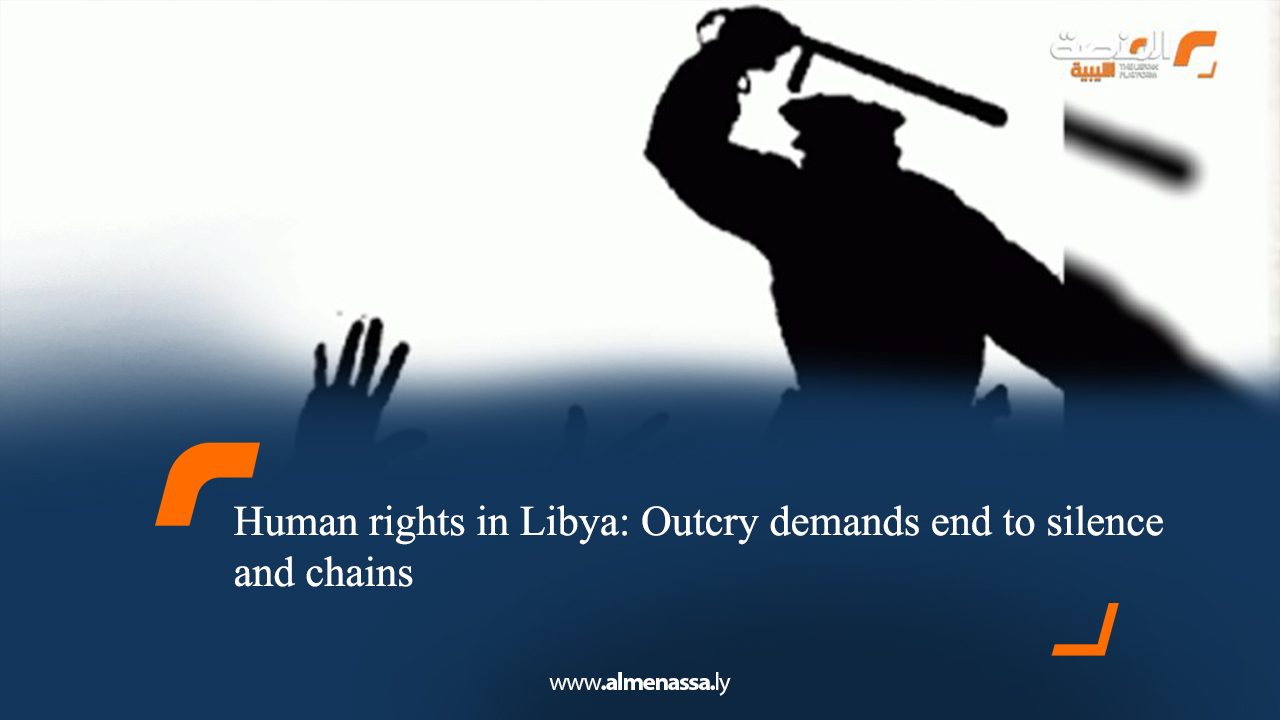Human rights in Libya remain a complex issue, resurfacing periodically whenever clear violations provoke public outrage.
Political activist’s abduction fuels controversy
The latest of these transgressions involved the abduction of political activist and blogger Abd al-Moneim al-Marimi from his car in front of his children in Surman. The Arab Organisation for Human Rights in Libya announced that the circumstances of his disappearance, coupled with previous phone threats he received, strongly suggest his disappearance is the result of a deliberate kidnapping.
The organisation demanded Marimi’s immediate release and his safe return to his family. It reiterated condemnation of all abductions targeting civilians, activists, and civil society workers without exception.
The organisation stressed that Libya is experiencing widespread lawlessness and chaos due to routine abductions, while armed groups tighten their grip on the country.
Criminal acts and their repercussions
For its part, the National Institution for Human Rights confirmed that this incident demonstrates the complete absence of any ability to control actions and resist criminal activities. It also highlights the severe deterioration of security conditions in the capital, Tripoli, impeding citizens’ ability to lead normal, humane daily lives free from pressure, intimidation, or threats from outlaw armed groups. Furthermore, these practices, which violate law and procedural legitimacy, constitute a grave breach of human rights protection guarantees, freedom of opinion and expression, and the right to peaceful protest and assembly, all enshrined in the Universal Declaration of Human Rights and international covenants on civil, political, economic, cultural, and social rights.
The Institution held the kidnappers, as well as the Government of National Unity, fully legally responsible for Marimi’s safety and demanded his immediate and unconditional release. It also held the Ministry of Interior within the Government of National Unity fully legally responsible for these security breaches and for its failure to fulfil its duties and obligations in ensuring the security, protection, and safety of citizens and residents on Libyan territory, as it is directly responsible for guaranteeing community security, combating crime, and preventing its occurrence.
Manifestations of egregious violations
Overall, the human rights situation in Libya is visibly deteriorating across several fronts, particularly amidst ongoing political instability and armed conflicts. These violations include arbitrary arrests, torture, sexual violence, and restrictions on freedom of expression.
In June 2025, the UN High Commissioner for Human Rights, Volker Türk, expressed his profound shock at the grave human rights violations uncovered in official and unofficial detention facilities managed by the Stability Support Apparatus force in Tripoli. Türk called on Libyan authorities to close these sites and conduct immediate, independent, impartial, and transparent investigations.
Türk affirmed that these discoveries corroborate the findings of the United Nations Support Mission in Libya (UNSMIL) and the previous Independent UN Fact-Finding Mission, as well as various eyewitness accounts, regarding the extent of violations committed in connection with them, including torture and enforced disappearances.
Consequences of recent clashes
Türk added that “our worst fears are now confirmed; dozens of bodies have been found at these sites, along with the discovery of suspected torture instruments and potential evidence of extrajudicial killings.”
The High Commissioner referred to the Public Prosecutor’s announcement of forming two committees to investigate human rights violations and abuses committed by state-affiliated security entities and associated groups during clashes in Tripoli. He also urged authorities to ensure an immediate and comprehensive investigation into the killing of Stability Support Apparatus head Abdel Ghani al-Kikli and into violations and abuses committed by all parties, regardless of their affiliations, through independent and impartial mechanisms, to ensure full accountability and victims’ rights to truth, justice, and reparations.
UN Mission’s call for human rights establishment
On Human Rights Day in December 2024, UNSMIL highlighted the transformative power of human rights in shaping Libya’s future, asserting that they are not merely ideals but also essential tools for conflict prevention, safeguarding lives, and building a stable and inclusive future.
Stephanie Khoury, Deputy Special Representative of the UN Secretary-General, stated that “human rights must remain central to the political process and democratic transition in Libya.” She called for “the immediate and unconditional release of all arbitrarily detained individuals and for transparent and independent investigations into such cases.”
UNSMIL stressed that access to justice, rule of law, accountability, and the protection of the most vulnerable groups are crucial for restoring trust in state institutions. It added that the prospects for lasting peace and sustainable development will remain uncertain without addressing human rights violations and ensuring meaningful participation from all parts of Libya in shaping the country’s future.
Human rights violations in Libya represent a multifaceted crisis where political influence intertwines with the power of weaponry, with some violations even acquiring material dimensions. Therefore, curbing these transgressions requires strict accountability for perpetrators to restore rights and prevent the recurrence of crimes.


